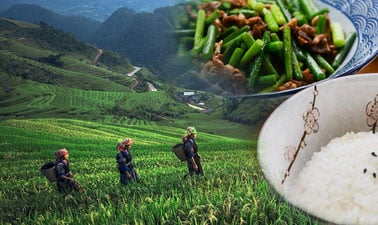- Level Foundation
- Ratings
- Duration 20 hours
- Course by The University of Edinburgh
- Total students 2,056 enrolled
-
Offered by

About
We are currently facing one of the biggest challenges worldwide: how to feed a growing population without exhausting global resources.
This course examines food security from a food systems perspective and illustrates the major global challenges present, from the environmental impact of food production to the public health impacts of current and future diets. We look at where food systems and non-food policies interact, such as climate change and biodiversity conservation.
You will be introduced to some of the tools used to collect information about these issues, such as the use of big data, modelling and behaviour change models. Finally, you will learn some of the interventions used across food systems to address these global challenges, from sustainable agriculture measures and sustainable certification to dietary guidelines and behaviour change.
What you will learn
On completion of this course, you will:
- Be able to identify the key elements of the global food system (stages, actors etc.)
- Understand the key global challenges relating to food systems
- Understand how tools such as certification, modelling, and the use of big data help to understand these problems
- Be able to identify methods and interventions to address some of these issues and transform global food systems
Skills you learn
Syllabus
Week 1: Introduction to Food Systems
What are they? How do they function? What are the global challenges associated with food systems? How do you as an individual interact with these systems and challenges?
Week 2: Food Production Challenges
Food production creates significant environmental and social impacts. What are these? What are the barriers to sustainable agricultural production? What is already being done to reduce the impact of crop and livestock production, and what needs to change?
Week 3: Food Consumption Challenges
How we buy and consume food is a key driver in food systems and the impacts they have. What needs to be done differently to improve the environmental and health impacts of food consumption? What has been shown to work?
Week 4: Impacts of Global Food Systems
What are the main impacts? We look across the systems at trade, supply chain management, and global health impacts related to diet. We also think about how we collect data from individuals to understand what they eat, and how to translate that into a measure of impact.
Week 5: The Future of Global Food Systems
What does the future look like? We explore what interventions might work, as well as some of the broad tools that can be used to make food systems sustainable. We also examine examples of guidance that might help develop sustainable diets, and discuss the change in data availability and analysis that can help us understand the complex systems that feed us all.
Auto Summary
Explore the critical challenge of feeding a growing global population sustainably with the "Sustainable Global Food Systems" course. This foundational course, offered by edX in the Health & Fitness domain, delves into food security through a comprehensive food systems perspective. Learners will examine major global challenges, including the environmental impacts of food production and public health concerns related to current and future diets. The course highlights the intersection of food systems with non-food policies such as climate change and biodiversity conservation. Participants will gain insights into the tools used to address these issues, including big data, modeling, and behavior change models. Moreover, the course covers various interventions within food systems aimed at tackling global challenges, such as sustainable agriculture practices, sustainable certification, dietary guidelines, and behavior change strategies. Spanning 20 hours, the course is designed for those at a foundational level and is available through a professional subscription. It is ideal for individuals interested in health, fitness, sustainability, and global food security, providing them with the knowledge and tools to contribute to creating sustainable food systems.

Dr Fiona Borthwick

Dr Jonathan Hillier

Dr Elaine Bannerman


